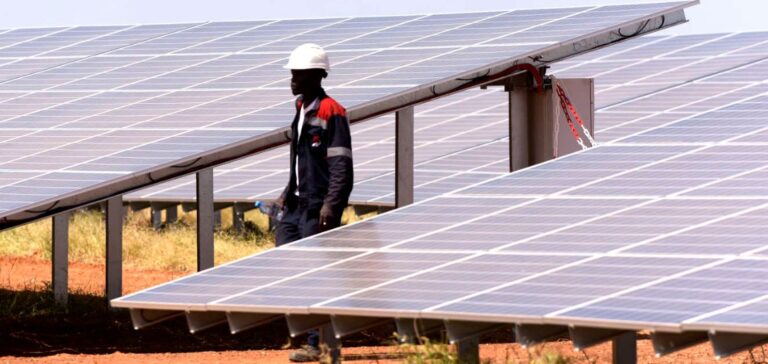RESPITE is a regional solar energy emergency response project to increase access to electricity in Africa.
A new regional project
RESPITE will be supported by the International Development Association (IDA) for a total of $311 million. In addition, the project will receive a $20 million grant from the West Africa Power Pool (WAPP). The objective is to facilitate future regional electricity trade and strengthen its institutional and technical capacities.
RESPITE’s main objective is to rapidly increase the capacity of renewable energy connected to the grid. In addition, it will also strengthen regional integration in the participating countries. Currently, Chad, Liberia, Sierra Leone and Togo are benefiting.
In addition, RESPITE will finance the installation and operation of approximately 106MW of solar power and battery storage. 41MW of hydroelectric capacity supports power distribution and transmission interventions in the four countries. Indeed, West Africa has one of the lowest electrification rates coupled with the highest electricity costs in Sub-Saharan Africa.
Targeted funding
In addition, rising oil prices are increasing the liabilities of electric utilities. Thus, countries are facing an acute electricity supply crisis that threatens to disrupt their economic growth. Rhonda Jordan-Antoine, World Bank project team leader:
“The solutions supported by the new project are multiple and have substantial benefits for the countries and the region. Among others, it will provide budgetary space for countries to address the food crisis resulting from the war in Ukraine, initiate the development of grid-connected clean energy through competitive bidding to alleviate the current electricity supply crisis, positively address climate change by helping countries move away from costly systems and polluting fuels, and help synchronize the WAPP network to strengthen regional integration in the energy sector.”
The new project is part of the World Bank Group’s response to the energy crisis in West Africa. The project aims to encourage major international private developers to enter smaller, more fragile economies. In addition, it also aims to demonstrate the viability of grid-connected solar and battery storage systems.
IDA is a World Bank fund for the poorest. It provides grants and low- or no-interest loans for projects that stimulate economic growth. IDA is one of the largest sources of aid to the world’s 76 poorest countries, 39 of which are in Africa.






















